News
Special Report: Inside Story Of How Sunday Igboho Rose To Prominence
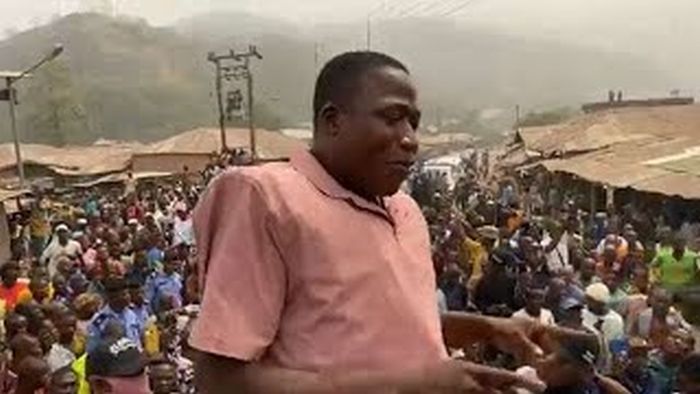
By Adejumo Kabir
It would have been hard to believe that Sunday Adeyemo would be a popular figure about 20 years ago, during his days on the streets of Modakeke in Osun State.
Popularly known as Sunday Igboho then, after his home town Igboho, in Oyo State, he relocated with his father to Osun at a very tender age.
Mr Igboho, according to people who knew him in his early days, was an easy-going young man in the mid-90s. He learnt how to repair motorcycles (Okada) and was one of the best motorcycle mechanics one could find in the community then.
But the intra-communal crisis between Ile-Ife and Modakeke which started in 1997 and ended in 2000 made Mr Igboho abandon his job to become a self-styled warrior.
Modakeke-Ife communal crisis
The crisis began when the Modakekes agitated for a local government council of their own in the 1990s and it led to a tussle between them and indigenes of Ile-Ife when the military junta of the late Sani Abacha granted their wish.
The government created Ife East Local Government out of the former Ife North and Ife Central local governments in 1997.
While Ile-Ife indigenes lobbied for the headquarters of the new council in their part of town, the Modakeke people objected. The government later announced Oke-Ogbo in Ile-Ife as the headquarters, despite initially indicating that Oke D. O. in Modakeke would be the location.
This was swiftly protested by the Modakekes, who alleged, “cheating and injustice”. Soon, a full-blown “war” ensued that led to the killing of hundreds of people from both sides and destruction of hundreds of houses, cars and other properties.
Modakeke ‘warrior’
Saliu Popoola, a Modakeke indigene, tells PREMIUM TIMES how the crisis rendered many people jobless in the community.
“While many individuals ran for their lives after losing their properties, some persons were forced to join the war between the two communities,” said Mr Popoola, who is in his mid-60s.
“My house was one of the houses burnt during the crisis. The homeless had no choice than to join the battle. Even those who could not handle a gun during the war were either carry gun bullets for warriors or chanting praise songs to embrace them.’’
It was learnt from various sources that Mr Igboho was among the youngsters carrying bullets for warriors in the early stage of the crisis and after a series of experiences on battlefields, ‘’he became courageous enough to handle a gun’’.
“We all love(d) Igboho because of his courage. He was one of the youths carrying bullets for us at war fronts. There was no single day you won’t find him supporting the Modakekes because he sees the community as his home,” Mr Popoola said.
Another frontline indigene of Modakeke who did not want to be named because of the sensitivity of the matter, told PREMIUM TIMES that he was one of those who encouraged Mr Igboho while growing up.
“Sunday grew up under our watch here in Modakeke. He was a major actor during the crisis between us and Ile-Ife. He started by supplying bullets to warriors and also ensured cover for some of the people chanting praise songs to embrace us then.
“When it appears that the end of the crisis was not near, many people who lost their loved ones and properties had to put their lives on the line. It was at this point that Sunday himself graduated from carrying gun bullets to holding a gun.
“He had a local double-barrel gun that he was using then and we can trust his judgement. He never missed his targets. Despite being a young man, he was displaying courage that many elders could not even withstand. I recalled he had an armless bulletproof he used to wear then
“Sunday was later leading a squad and was quite representing Modakeke relentlessly at the war front. Nobody is this Modakeke would deny the role he played during the crisis because he was a major actor”.
End of crisis
PREMIUM TIMES gathered that the crisis did not come to an end until the year 2000 when the former president, Olusegun Obasanjo, set up a committee, led by Olabode George, to look into the menace.
Mr George’s committee was supported by the Osun State government headed by the then governor, Bisi Akande, and several recommendations were made to end the crisis.
The committee, PREMIUM TIMES learnt, recommended the recognition of Ife East Area Office as a local administration entity with headquarters at Oke, D.O. in Modakeke, and with the addition of “Ife” as a prefix to Modakeke for the town to become known as Modakeke-Ife.
More so, it recommended the location of a mobile police training school in Ile-Ife and police ‘buffer zones’ in the flashpoints of the conflicts like Oke Yidi, Odo Okun, Iye Kere, Egbedore, Akrabata, Isale Agbara and Mayfair/Obande areas.
The then government approved the recommendations by the committee which ended the bloody crisis between the two communities.
Until the crisis ended, Mr Igboho did not relent on battlegrounds ‘’defending Modakeke town’’, PREMIUM TIMES learnt.
Post-crisis
After the crisis, Mr Igboho joined the Modakeke branch of the National Road Transport Workers (NURTW) in the state under the leadership of a man popularly known as “Double”.
Some NURTW members who spoke with PREMIUM TIMES said Mr Igboho was one of the loyalists of ‘Mr Double’ and they were both known for collecting revenue and dues from transporters at motor parks.
“Sunday Igboho could not later go back to his job as a motorcycle mechanic, hence he joined the NURTW business under his boss called Double,” said an NURTW member who did not want to be identified.
“He later bought his bus. It was at that time that got another nick “Majasola” and was often regarded as “Igboho Majasola” by many residents of the community.
“Double and Igboho later made move to register Okada riders under NURTW even though riders had their association and that was how another internal crisis started in Modakeke with Igboho being one of the trouble makers.”
Multiple sources present in Modakeke during the crisis said Mr Igboho and his colleagues also seized the opportunity of the crisis between NURTW members and motorcycle riders to reportedly rob most shop owners in the town.
When asked for more details and his account on the then crisis, the current leader of Modakeke NURTW, who simply identified himself as Amori, confirmed being a witness of the saga.
He told our correspondent: “I don’t want to start narrating all that happened then. It was a sad incident and I don’t even have any link to Igboho since he left Modakeke in 2004”.
Igboho ‘evicted’
PREMIUM TIMES was able to locate the residence of one of those tackling insecurity and all forms of thuggery in Modakeke then and he gave an account of how Mr Ignoho was forced to leave the town.
Speaking with our correspondent, Adetunji Adesiyan, the secretary of Modakeke Peace Committee in early 2000, said ‘’Mr Igboho ran away from the town after some youth attempted to ‘kill’ him for being one of those terrorising the community’’.
“After the Ile-Ife and Modakeke crisis, people felt relaxed and they were trying to return to their respective businesses. It was at that point that Okada riders and NURTW members started another internal crisis within Modakeke.
“This was as a result of an announcement by Isamotu Double who was Igboho’s boss that all Okada riders in the town should come and register under him. The Okada guys resisted this and that was how internal killings began. At least I know of three close individuals who lost their lives in the battle.
“Igboho supported Double then and there was one guy called Okrika who was leading the bike men’s squad. It was bloody to the extent that students were not going to school and businesses were disrupted. This was around 2004.
‘’The incessant crisis led to the bringing together of “Modakeke Peace Committee which was headed then by Yekin Awopetu while I served as the secretary. The peace committee started raiding the NURTW guys and the Okada riders’ hideouts with the support of the police.
“We got the backing of the DPO at Oke Ibutu. We placed a ban on NURTW and Okada riders’ union. When some of them like Okrika who was leading the motorcyclist resisted, community youths unleashed an attack on him.
“We declared all of them including Igboho wanted and many others ran away. Double who happened to be Igboho’s boss was also killed when he refused to allow peace reign.
“The day people concluded that they were going to kill Igboho, he ran to the police station for rescue. He escaped through the fence while his car was burnt into ashes. That was how he got to Ibadan. We rejected him here (Modakeke) by forcing him out of our town”.
Ibadan ‘thug’, allegations
On getting to Ibadan, the Oyo State capital, Mr Igboho joined the NURTW in the state and through his activities, he met former governor, Lam Adesina.
From late Mr Adesina, he became closer to the former governor, Rashidi Ladoja, and was involved in the combative politics between the late political leader, Lamidi Adedibu, and Mr Ladoja.
He acted as the latter’s bodyguard throughout the tussle and also led the camp of Mr Ladoja in the violence that occurred then.
Mr Ladoja was illegally removed as governor in 2006 following a political disagreement he had with the late Mr Adedibu. He was later returned after 11 months through a court order.
Before now, Mr Igboho has been accused of land grabbing, using armed thugs against original owners of such lands but he has also in the past defended himself against the allegations on several occasions, saying he only fights on land matters “when he is invited to do so”.
He claimed that his known job is ‘’buying and selling of cars’’.
Mr Igboho did not respond to PREMIUM TIMES’ enquiries via phone calls and text messages seeking his account of his days at Modakeke and how he left to become popular again in Ibadan.
Recent activities
He hit national limelight when he gave a seven-day ultimatum to herdsmen to vacate Ibarapa, Oyo State due to the criminal activities of armed herders.
Mr Igboho accused the herders of being responsible for the killings, rape and kidnappings of the residents of Oke-Ogun and Ibarapa.
Despite a warning by his state governor, Seyi Makinde, against such action, he invaded Igangan and his visit led to a clash between some Yoruba youth and Fulani in the community. Properties worth millions were reportedly destroyed.
His house was razed by fire some days after though the police are yet to comment on the source of the fire.
He also visited Ogun State and vowed to evict Fulani herdsmen in the South-west following the insecurity rocking the region, an action against the laws of the country.
-
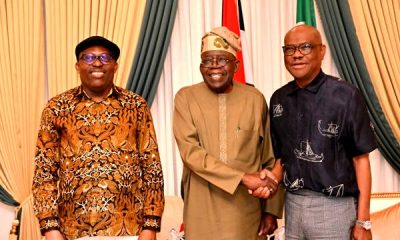
 News5 days ago
News5 days agoAgain, Tinubu Wades Into Wike-Fubara Feud
-
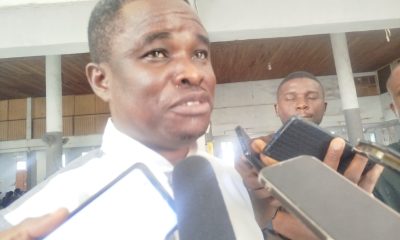
 News4 days ago
News4 days agoOsun 2026: ZLP Governorship Candidate Promises Accountability, Good Governance
-
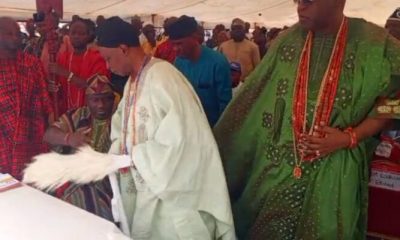
 News2 days ago
News2 days agoAlaafin Must Respect Olubadan Stool or Face Consequences – Ibadan Traditional Leaders
-
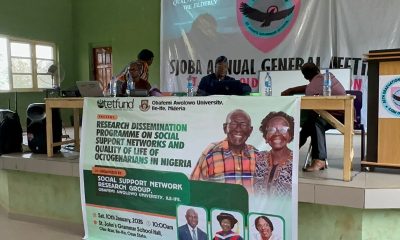
 News4 days ago
News4 days agoResearchers Harp On Govt Policies To Safeguard Older People In Nigeria


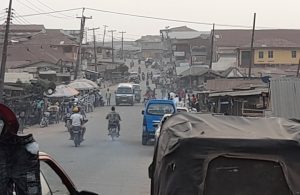
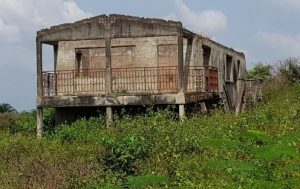
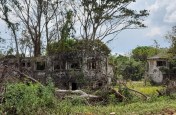
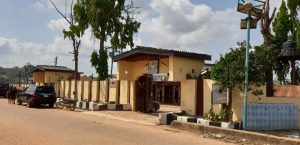
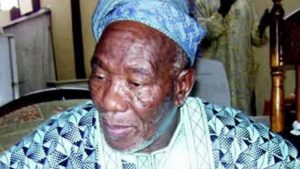
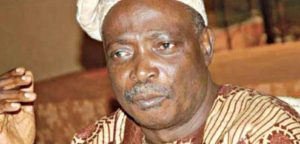
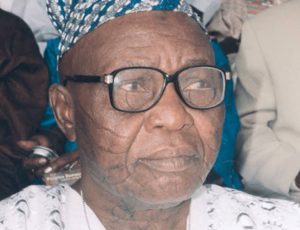
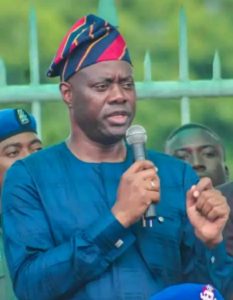

2 Comments